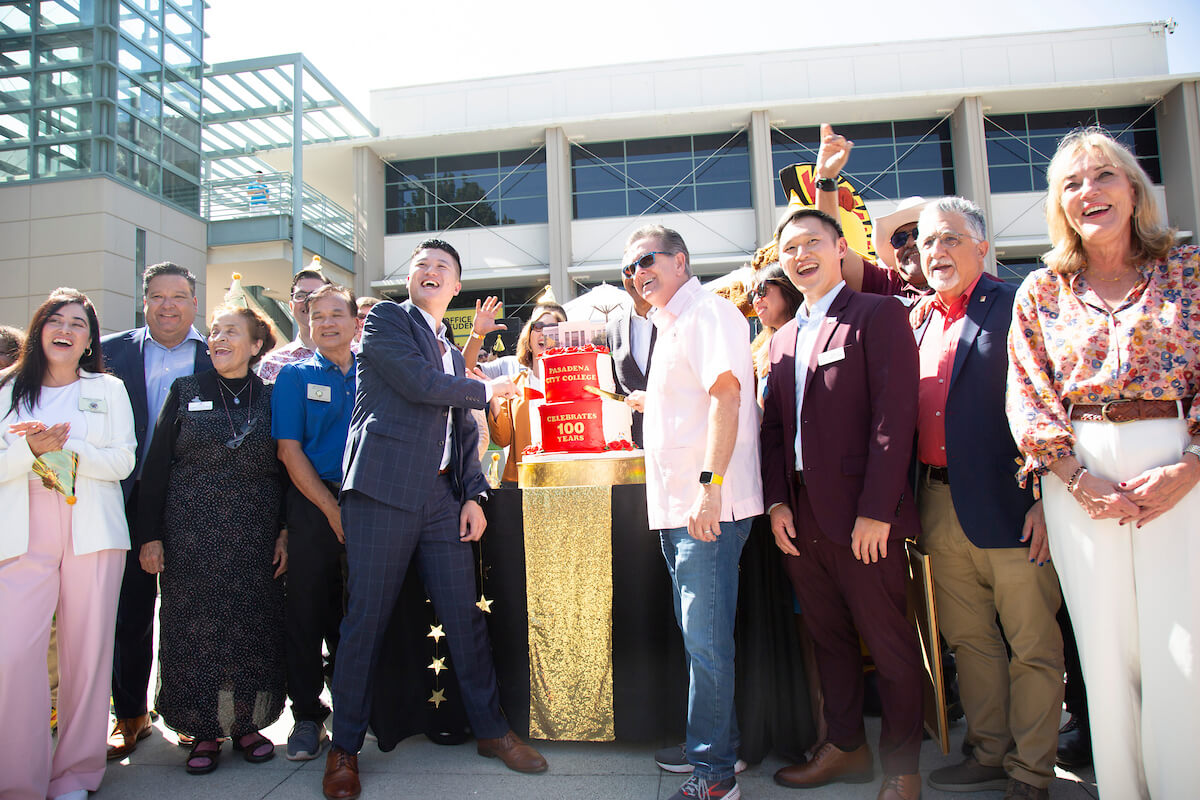Join the Centennial Celebration
PCC’s Centennial Celebration will continue throughout the 2024-2025 academic year. We are ready to celebrate our birthday, and we’re glad you are here to join us! Check back for updates on ways you can get involved.
Celebrating a Century of Memories
Pasadena City College has been a part of countless lives, shaping dreams and fostering lifelong friendships over the past 100 years. As we celebrate our centennial, we invite you to share your favorite memories from your time at PCC. Whether it was a transformative class, a memorable event, or a lasting friendship, your story is a cherished piece of our legacy. Join us in commemorating a century of excellence and community—your memories are what make PCC extraordinary.
Thank you PCC  for all the dance classes, fencing classes, ASL, theater classes. Because of you I’m @ UCLA now!
for all the dance classes, fencing classes, ASL, theater classes. Because of you I’m @ UCLA now! 

 Nothing but love for this school
Nothing but love for this school 
Feliz cumpleaños PCC. 100 años de educar a nuestra communidad.
Gracias PCC Professors and Staff for always supporting me as a student!
HBD PCC, thank you for accompanying me through my college journey!
Happy B-day!! From an alumna from 2002: Forever in my heart. Thank you for the great opportunity you gave me and my family.
Dear PCC, Thank you for being here always for myself, my family, and our community. Here’s to another 100 years!
Thanks PCC. I spent the best time here. Great teachers !!  Great educational experience
Great educational experience  .
.
Happy 100th Birthday, PCC! It’s nice to be back after 27 years! I owe my success to PCC!
I just transferred this past Fall but I’ll always be a Lancer at heart! I owe my success to this incredible school and especially the veteran’s center! Happy 100!!!
In 1981, I had to wait two years to become a resident in order to join the PCC cosmetology program. At that time, it was the number one school in California, I believe. After waiting two years, I was not able to get in—I think it was full, but I’m not sure. I went to Mr. Coley, who was the head of the department at the time, and begged to be admitted. He let me in, and I promised to be the best student. In the middle of the year, I was in a horrible car accident and had to drop out. Long story short, he let me return, and I graduated with my class with top grades. It was the best experience ever.
Dear PCC,
Happy 100!
Sharing a million thank yous to all teachers and support staff who never failed to believe in the ability of the student to surpass and succeed through all the challenges in life.
Dios Mabalos, asin Dios Mapadagos
Coming to Pasadena City College was always and still is exciting. The exchange of ideas both new and old; from faculty to students and vice-versa. Truly a center of learning.
My best memory is Pasadena city college since 1999, I started with ESL —
very educated and kind teachers, helping there students dearly and putting so much time on each student if they need extra help and also those students with second languages.
In 1927, Pasadena Junior College Principal William F. Ewing wrote:
100 years later, this sentiment rings true.
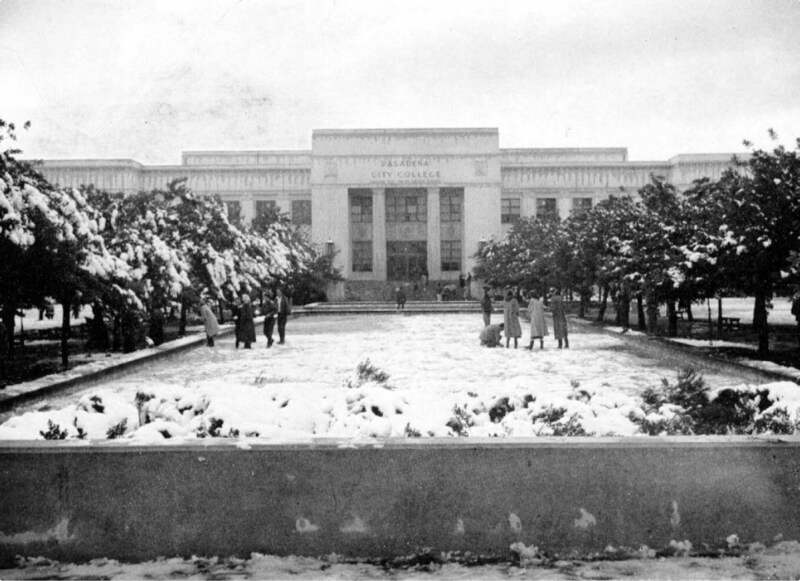
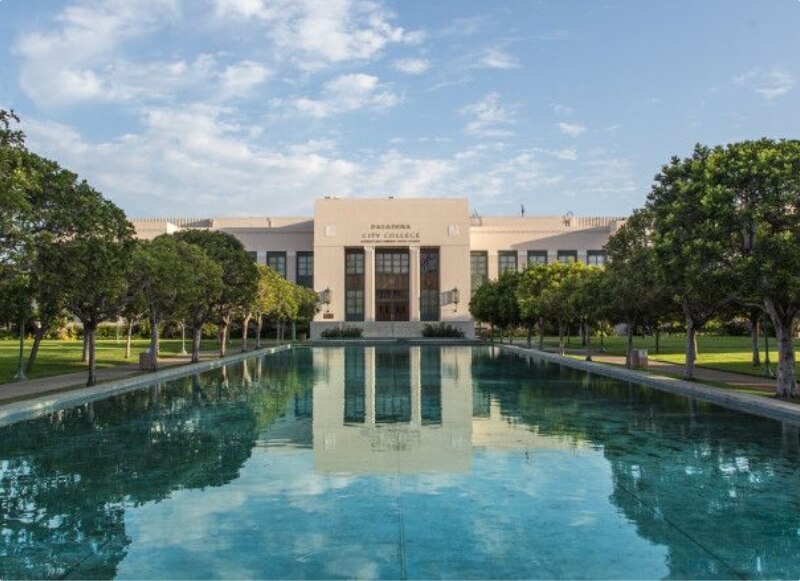
The Iconic PCC Mirror Pools
Our rich past fuels us forward.
In 1924, the residents of the Pasadena area established Pasadena Junior College making history as one of the first junior colleges in the Southwest United States. 100 years later, Pasadena City College carries the torch to the next 100 years.
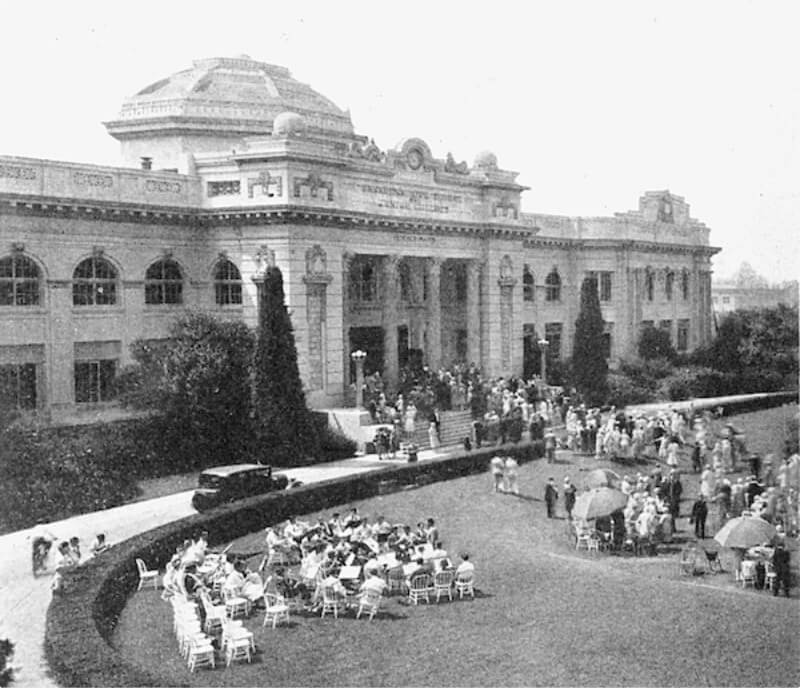
Pasadena Junior College is Established
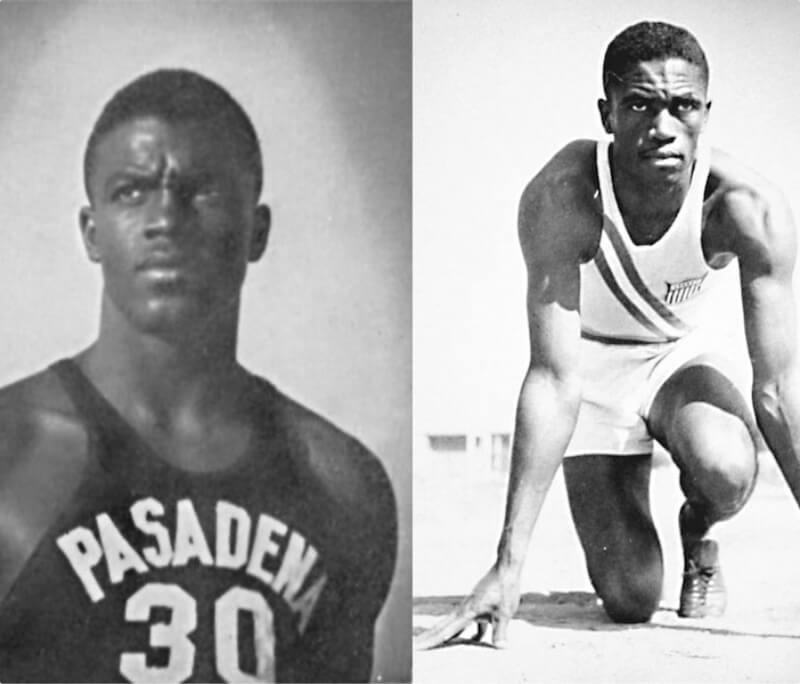
Mack & Jackie Robinson Compete as PJC Bulldogs
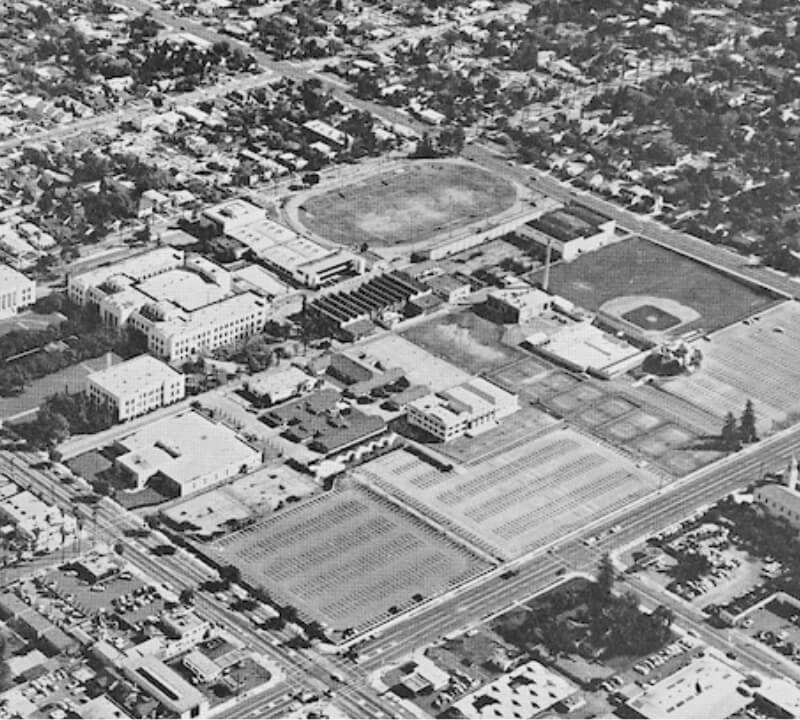
Pasadena City College Becomes a Two Year College
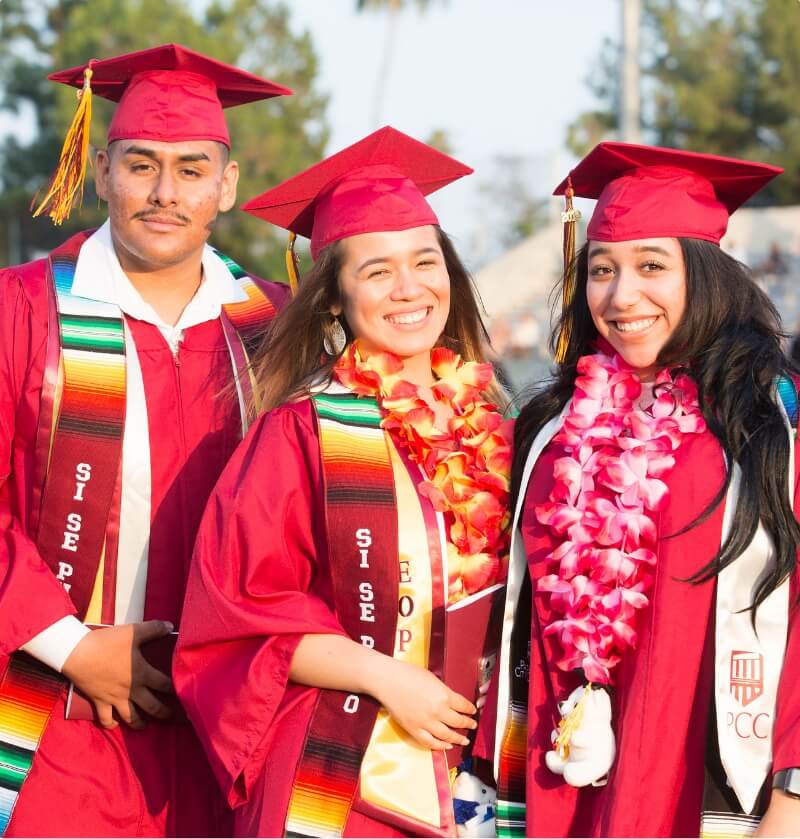
PCC Ranks 1st in California in Degrees Awarded to Minorities
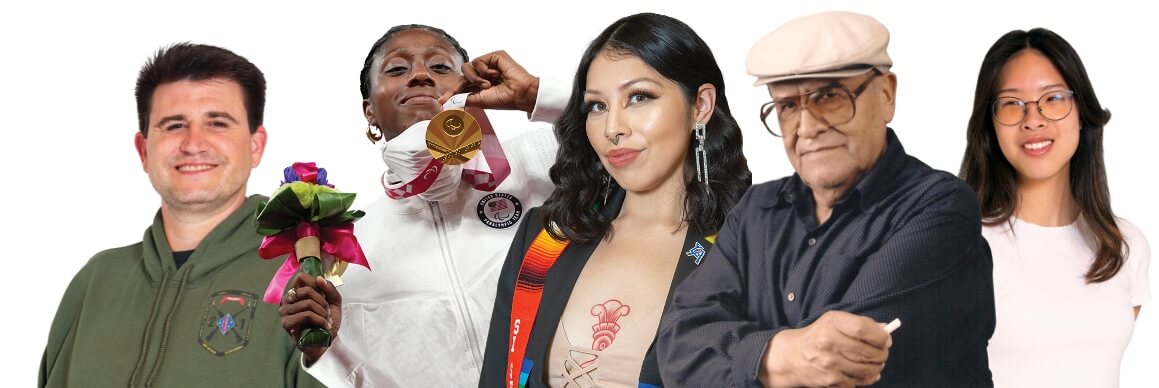
PCC has never been and never will be, a bystander.
At PCC we make history and rewrite the future. Over the last 100 years, our community has grown to hundreds of thousands with each member purposefully making their corner of the world better.
Ready for take-off.
As we celebrate our first century, we launch boldly into the next 100 years, pushing the bar of excellence higher. Together we will reach new and greater heights. Join us as we write our next chapter.
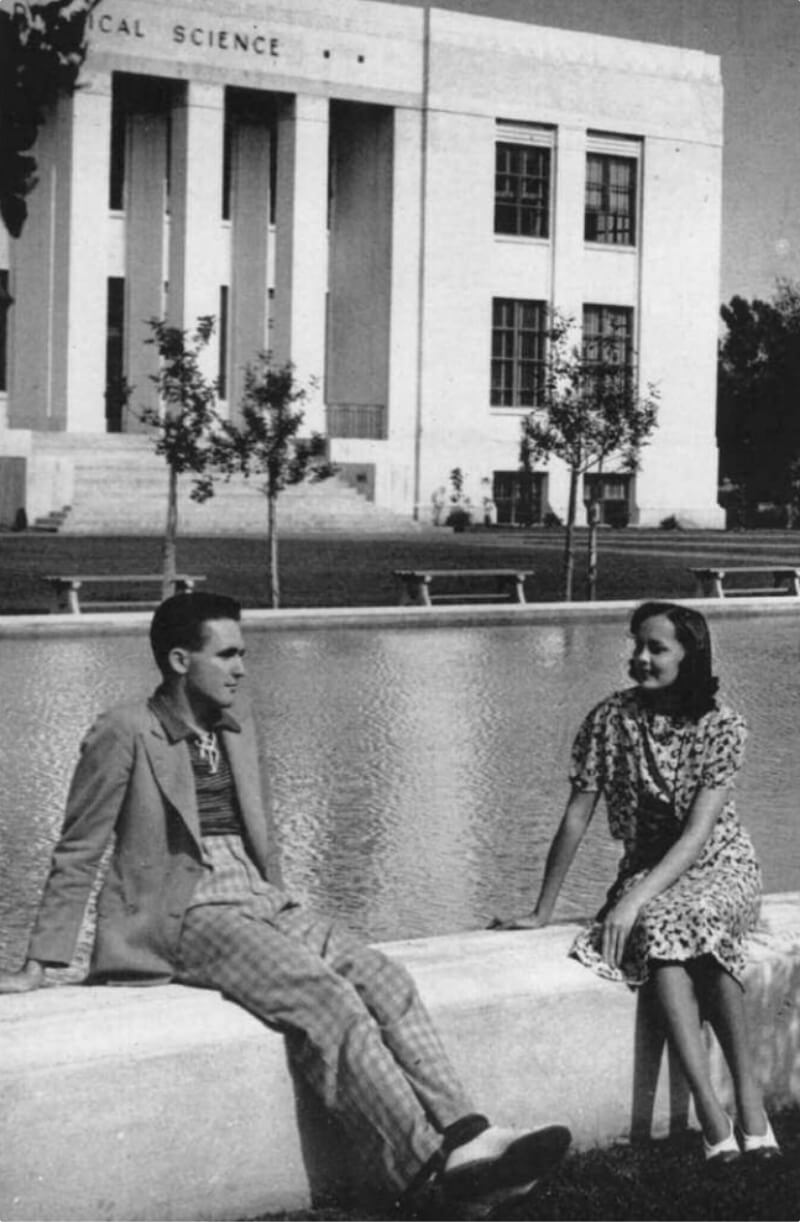
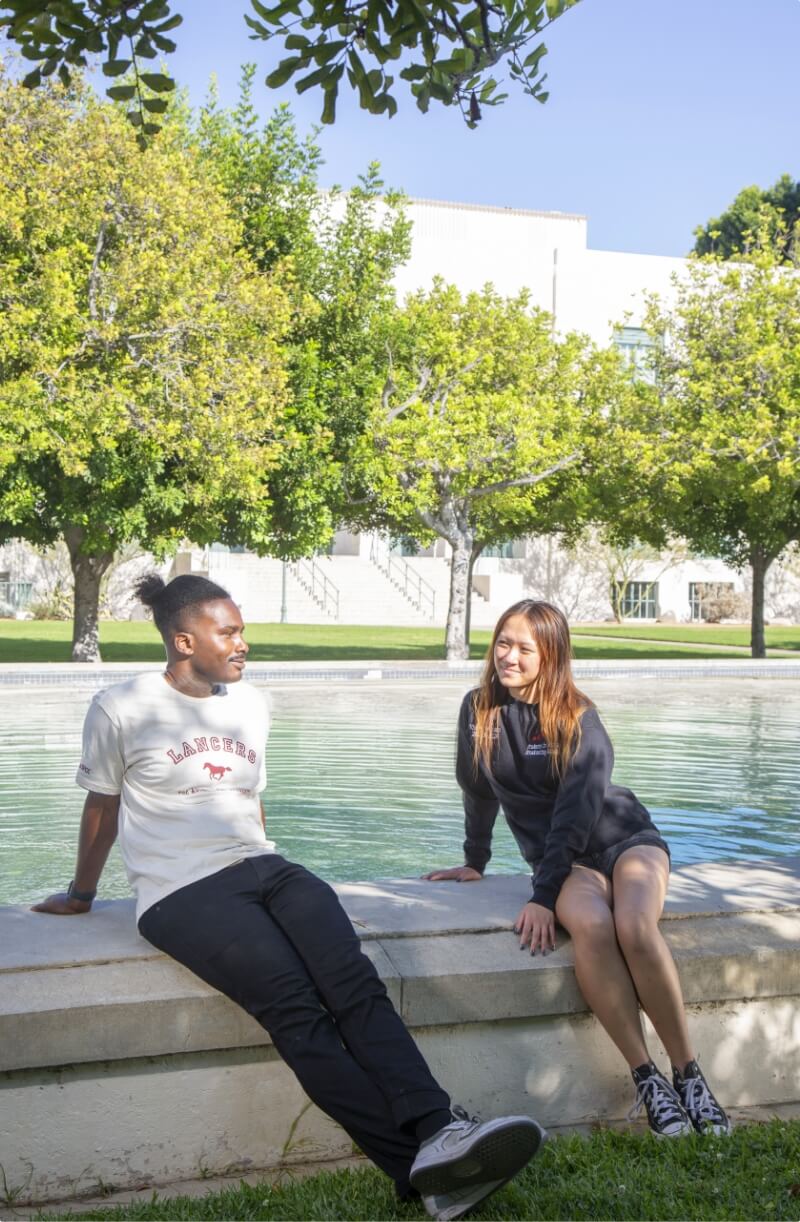
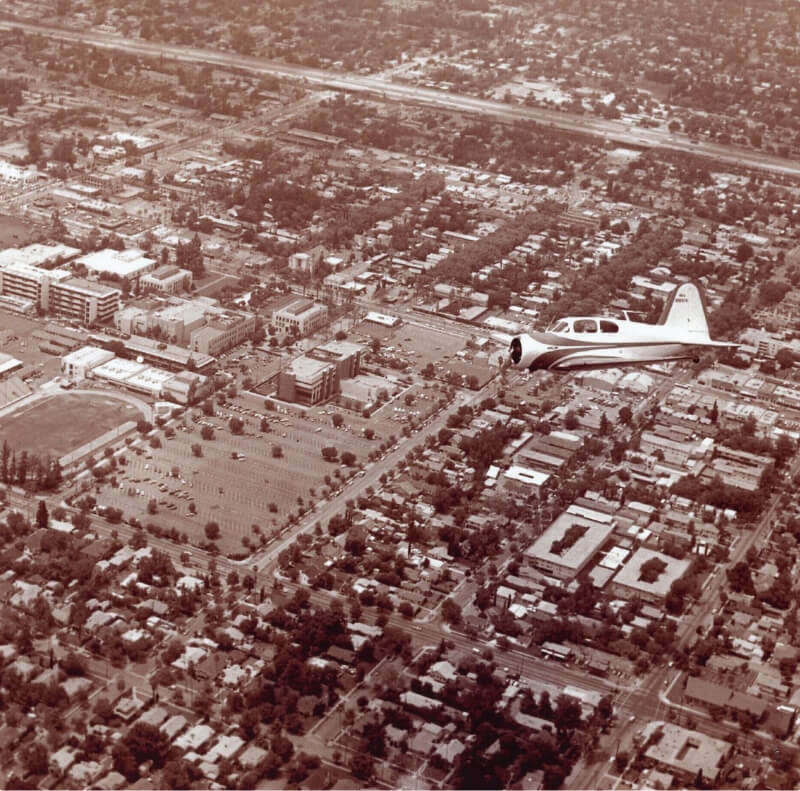
Making History for 100 years
A glimpse at the major milestones that shaped who PCC is today.
-
1911 -
Land for campus construction is identified The original 18-acre property is bounded on the north by Colorado Boulevard, the east by Sierra Bonita Avenue, the south by Blanche Street (later Del Mar) and the west by Hill Avenue. The new educational facility, which was originally designated to be a new campus for Pasadena High School, begins to take shape in 1912.
As we reflect on our history, we acknowledge the original stewards of the land on which we gather. Pasadena City College is a learning community within the indigenous homelands of people who have been known as the Gabrielieño Band of Mission Indians of the Sisitcanongna Village and Kizh Nation. Learn more
-
1913 -
Pasadena High School is opened Campus construction is complete. Costing $632,000 to build, Pasadena High School is opened in 1913 with an enrollment of 1,700 students.
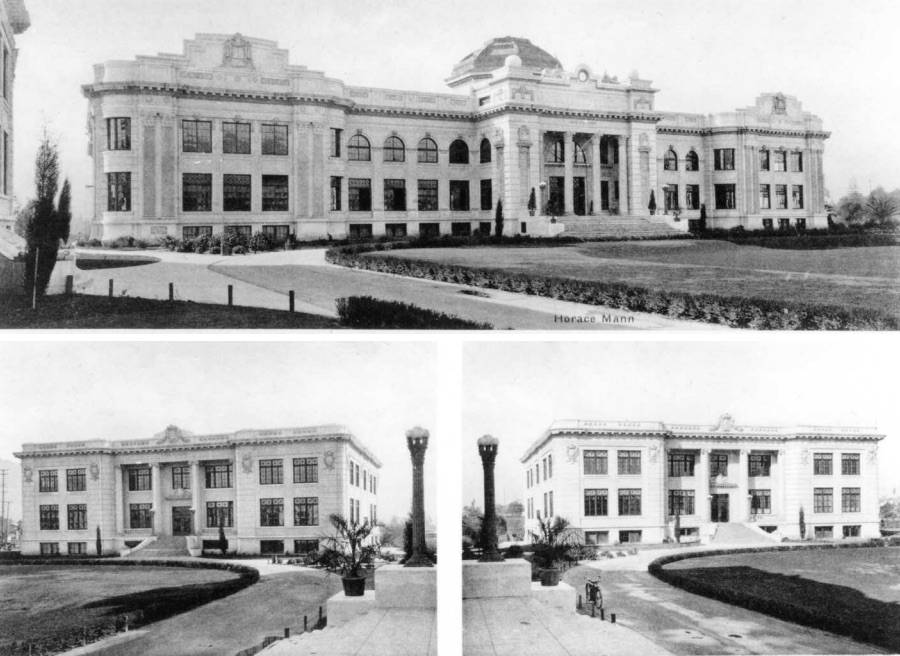
-
1924 -
Pasadena Junior College is established In response to the community’s need for higher education facilities, Pasadena Junior College is established on the Pasadena High School campus. It was one of the earliest junior colleges in the Southwest United States. William Ewing is named the first president (then called "principal") of the college.
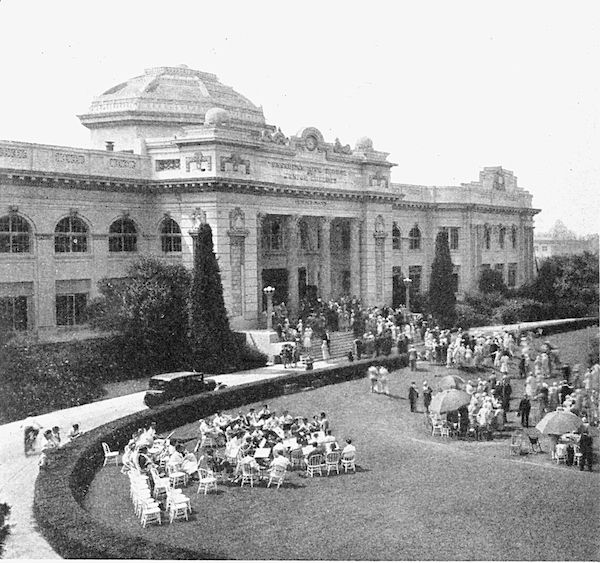
Opening Day Lawn Party
-
1928 -
Pasadena High School and Pasadena Junior College merge Pasadena’s Board of Education moves to a 6-4-4 system, with six years of elementary school and four years of secondary school feeding into a four-year plan at the Colorado campus — grades eleven through fourteen. Under the restructuring, the facility changes its name from Pasadena High School to Pasadena Junior College and the old Pirate mascot changes to a Bulldog.
-
1931 -
The PJC Bulldog band becomes the official Western College Band for the Tournament of Roses The band begins to lead the Rose Parade as well as play during the Rose Bowl football game. By 1939, it is officially known as the Pasadena Tournament of Roses Band.

-
1931 -
Albert Einstein visits Pasadena Junior College Albert Einstein is enthusiastically welcomed by some 8,000 people, including students from the city schools and the PJC, when he visits to dedicate the college's astronomy and observatory in February 1931. He is joined at the cemetery by Edwin Hubble, namesake of NASA's Hubble Space Telescope.
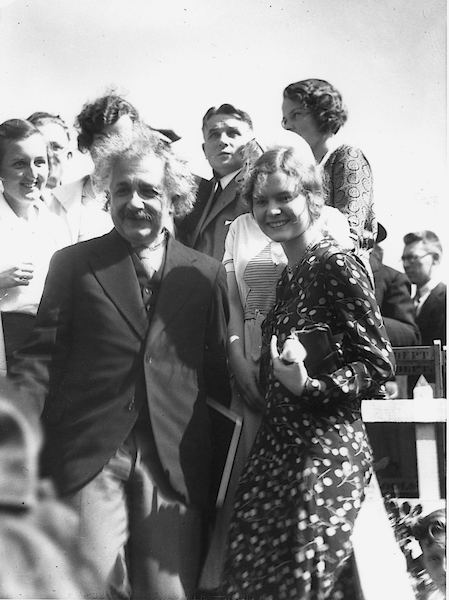
Nobel Laureate Albert Einstein (above) poses with PJC students at the opening of the new observatory building on February 26, 1931
-
1934 -
Campus' three main buildings are demolished Following the 1933 Long Beach Earthquake, the young college's three main buildings are demolished and rebuilt. Fifty steam-heated tents are erected to house the classes formerly held in the C Building (now known as the Jack Scott Building). Classes would be conducted in "Tent City" for the next three years, during which time both students and teachers experienced many hardships. The new structures are renamed the C, D, and E buildings.
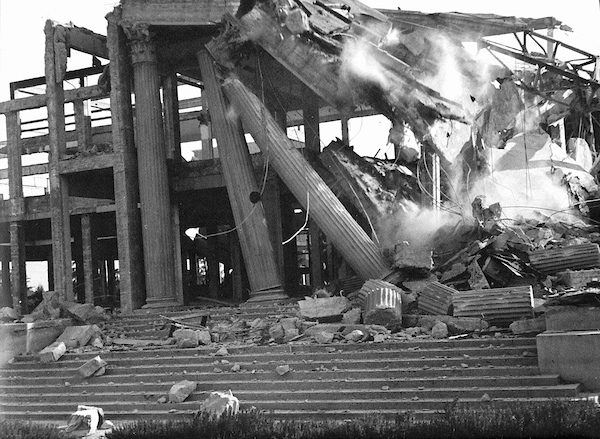
-
1936 -
Mack & Jackie Robinson compete as PJC Bulldogs From 1936 to 1938, Pasadena's Robinson brothers thrill the junior-college sports world — and beyond — with incredible feats and nationally recognized performances.
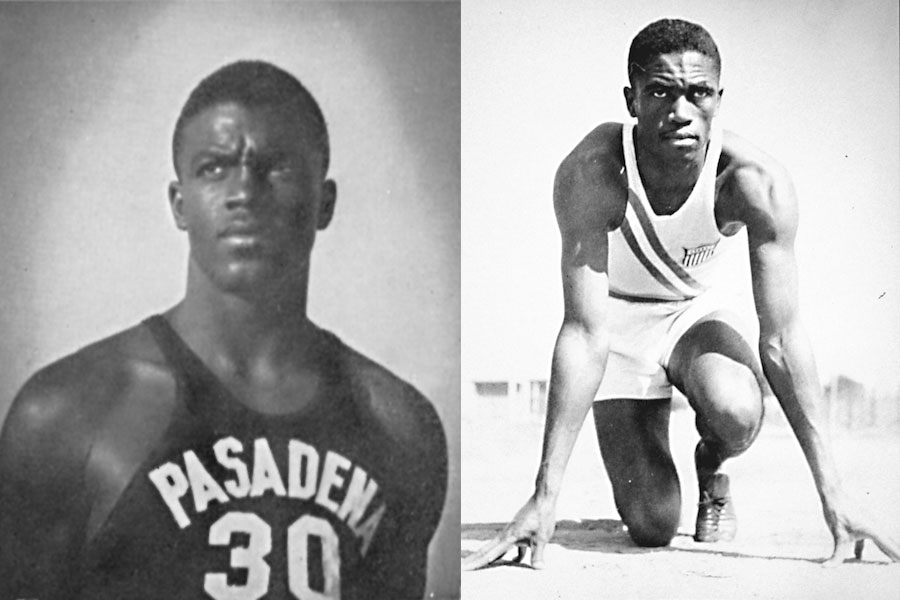
Jackie Robinson (left) in PCC uniform; Mack Robinson (right) in the 1936 Olympics in Munich, Germany
-
1947 -
PCC goes on the airwaves The college's new radio studio opens doors to creative expression and learning in media arts, while providing an additional means for showcasing the school and its activities to the community. The station would go on to become KPCC-FM, now known as LAist, a national leader in public radio.

-
1948 -
1948: From "Junior" to "City" In a reflection of its expanding services and changing course offerings, in September PJC became PCC – Pasadena City College.
-
1949 -
New library building establishes educational leadership The dedicated library, now known as the L Building, opens on October 30 with two large reading rooms, an entry hall, a room for listening to phonograph records, and a movie previewing room. By 1971, the library collection had grown to full capacity. This overcrowded situation was not relieved until 1993, with the opening of Shatford Library at the northeast corner of campus. Today the L Building is home to PCC's Student Services areas.
-
1953 -
Registered Nursing program begins The program is one of only five pilot programs in the nation to address the need for qualified nurses — a need that continues today.
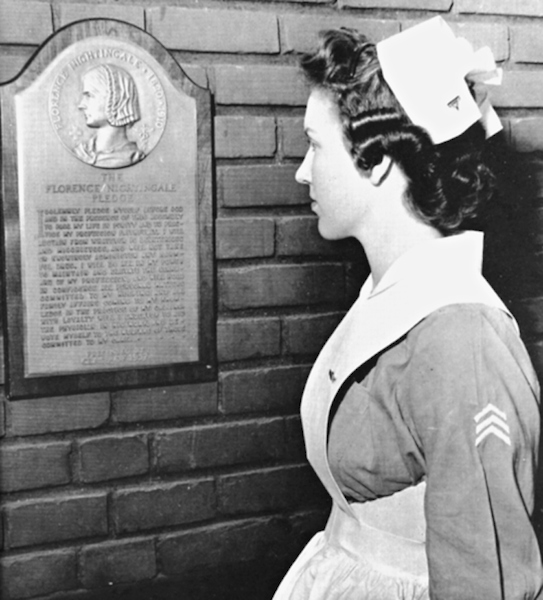
-
1954 -
Pasadena City College becomes a two-year college Pasadena High School continues to share space with the college until the new high school campus in east Pasadena opens in 1960.
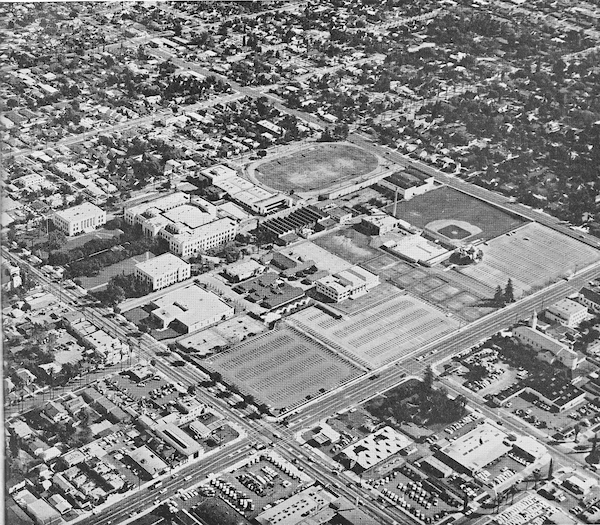
The PCC campus, 1959
-
1957 -
The Lancer is born During football season, a new mascot, the Lancer, takes the field for the first time. The bulldogs can now be found at Pasadena High School.
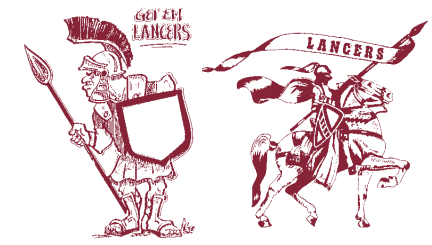
For a short time, the Lancer took the form of a medieval knight on horseback
-
1966 -
Pasadena Area Community College District is formed Approved by voters on April 26, the newly formed district encompasses the school districts of Pasadena, Arcadia, La Cañada, San Marino,Temple City and South Pasadena. This changed welcomed the first seven-trustee governing board, along with an additional title for the college president. With duties now encompassing an entire community college district, the chief executive is known as the Superintendent/President.
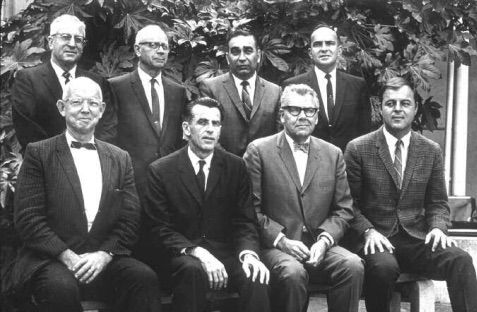
The first PACCD Board of Trustees in 1966, along with Superintendent/President Armen Sarafian (seated, second from right).
-
1973
-
Extension of the PCC campus Sierra Bonita Avenue is closed south of Colorado Blvd., and Bonnie Avenue is widened, providing more space for the college to grow.
-
1979 -
The PCC Foundation is established The PCC Foundation is founded as a non-profit auxiliary corporation for the benefit of PCC's students, faculty, and programs. Today, the Foundation continues to raise money for student programs, faculty grants, equipment and technology, and more than $600,000 annually in student scholarships.
-
1985 -
PCC's College Coordinating Council begins era of shared governance A result of the Community College Reform Act of 1985, the College Coordinating Council is created to provide a forum to which any individual or group from the college community can bring a college-related issue for official consideration and resolution.
-
1987 -
Major campus rebuilding begins The administration, faculty, staff, and local community formulate a vision that anticipates college facilities requirements into the 21st century. The cost of these improvements ultimately exceeds $100 million.
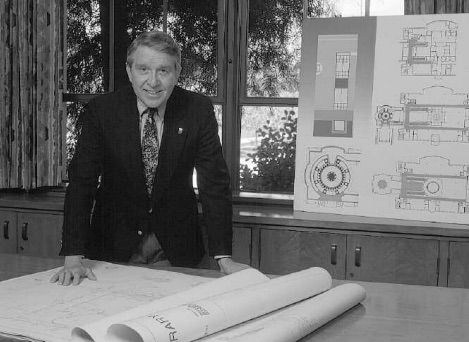
Superintendent/President Jack Scott with the plans for the new library
-
1992 -
Designated as an HSI 1992: PCC is federally designated as a Hispanic-Serving Institution (HSI), with over 25% of its full-time undergraduate students identifying as Hispanic/Latine since 1990, marking its commitment to serving diverse and historically underserved communities.

-
1993 -
Shatford Library opens The Shatford Library, a three-story building that allocated 50,000 square feet to library functions, becomes the first new major building completed on campus in 20 years.
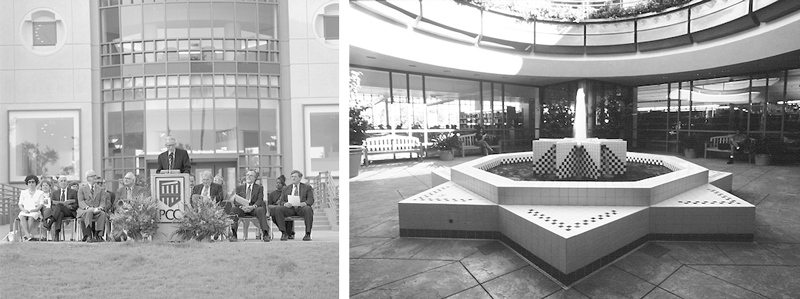
Dedication ceremony of the Shatford Library on October 27, 1993. Walter Shatford II, speaks (left); The library fountain (right)
-
1996 -
The Community Education Center opens First established in 1979 as a community skills center, the Community Education Center is renamed and given a permanent location on Foothill Blvd. in east Pasadena. Its doors open in August.
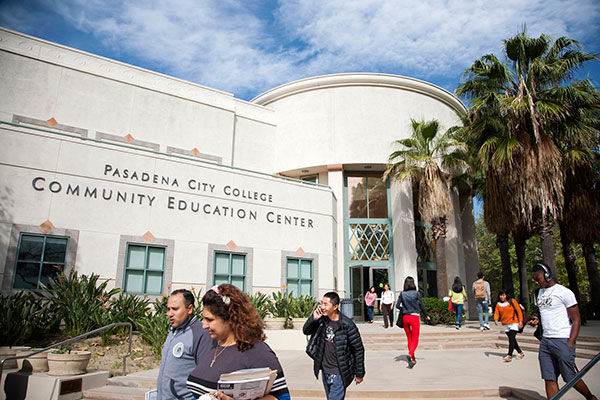
-
1997 -
Shared governance is written into official policy After consultation with faculty, students, staff, and managers, the Board of Trustees approved a shared governance policy that encourages consultation, collegiality, and transparency among the college constituency groups.
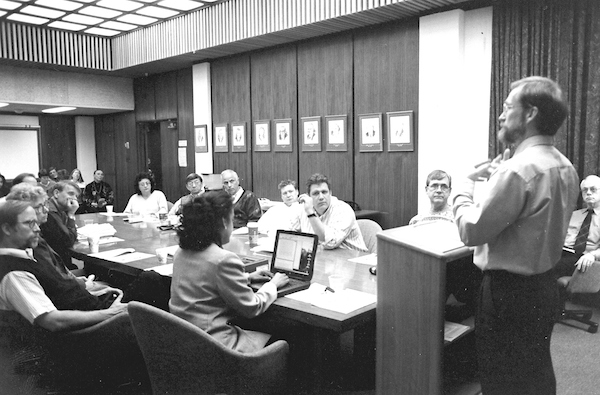
-
1999 -
Hutto-Patterson Gymnasium opens The old gymnasium is replaced by the two-story, 65,000 square foot Hutto-Patterson Gymnasium. Included in the facility is the Sports Hall of Fame, honoring outstanding athletes and coaches of PHS, PJC, and PCC.
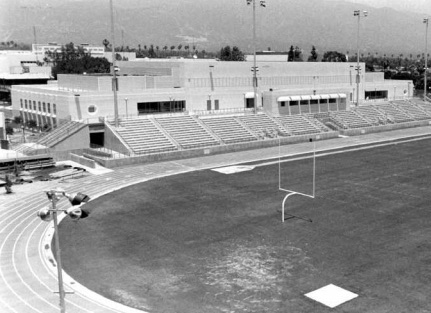
The new Hutto-Patterson Gymnasium and Robinson Field
-
2007 -
"Boots to Books" course aids veterans A new package of coursework and services expands services to U.S. military servicemembers, easing their transition to civilian life. The college will go on to be recognized as a top school for veterans for more than a decade.
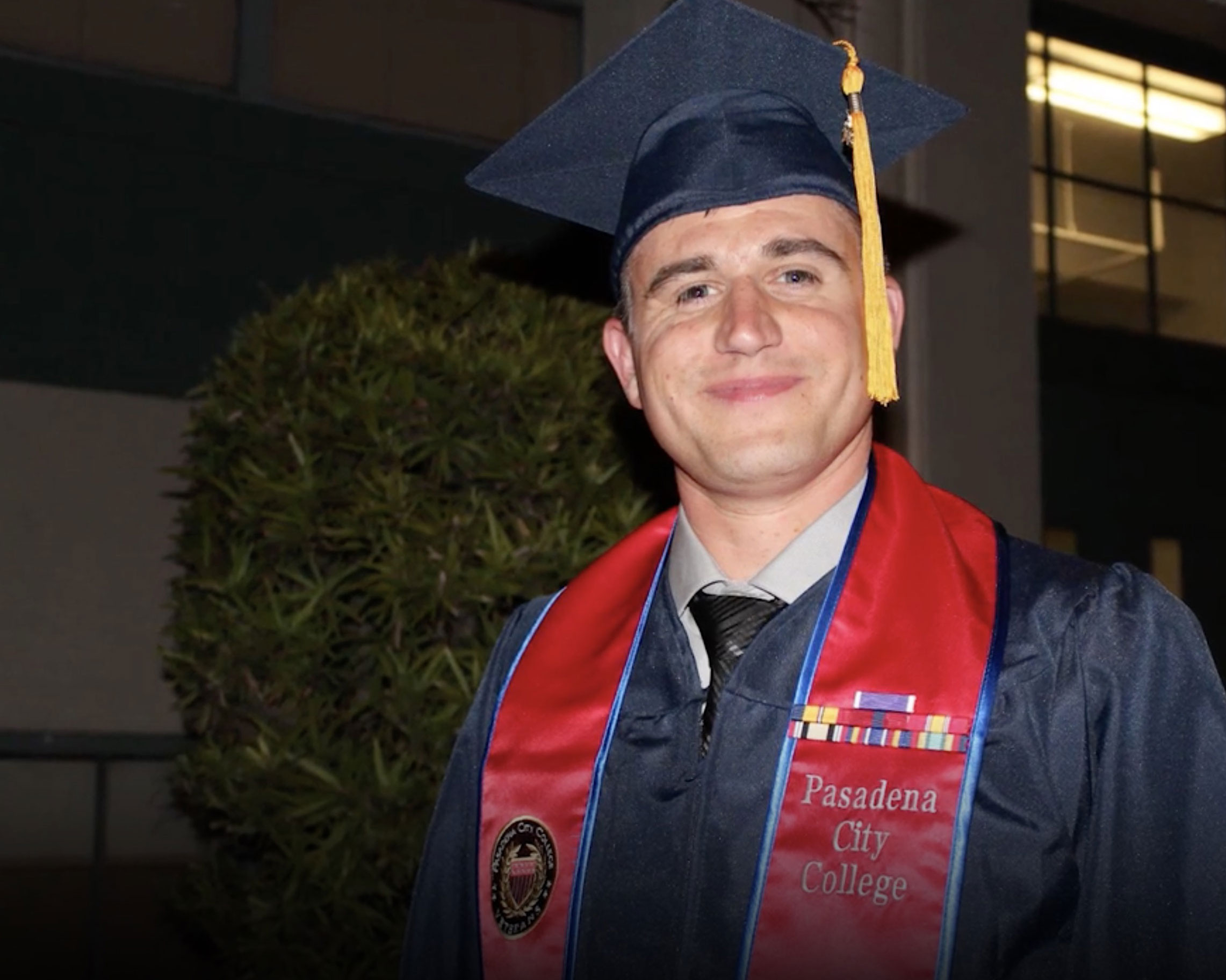
-
2013 -
Rosemead Campus opens PCC at Rosemead, a full service educational center, gives greater access to higher education for diverse communities within the district. The site would operate for a decade, and the college is now pursuing a permanent home for the satellite campus.
-
2014 -
The Center for the Arts opens Funded by 2002's Measure P facilities bond, the Center for the Arts is an 87,000-square-foot artistic oasis with 14 classrooms and 3 performance spaces: the Westerbeck Recital Hall, the Boone Family Art Gallery, and the Center for the Arts Theatre.
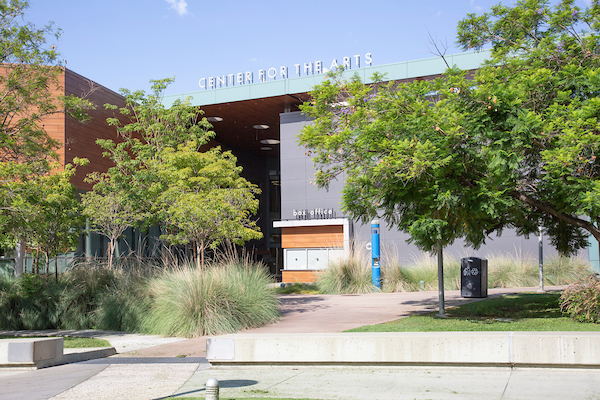
-
2014 -
Student Equity becomes a key focus From 2012 to 2014, the college developed a new Educational Master Plan that includes race-conscious language. Equitable outcomes for all students are positioned as a first priority of the college.
-
2017 -
PCC earns Top-Ten designation In March, the college is recognized in a Washington, D.C., ceremony as one of ten finalists for the 2017 Aspen Prize for Community College Excellence, the nation’s premier recognition of high achievement and performance in America’s community colleges. PCC would go on to earn the distinction for six consecutive years.
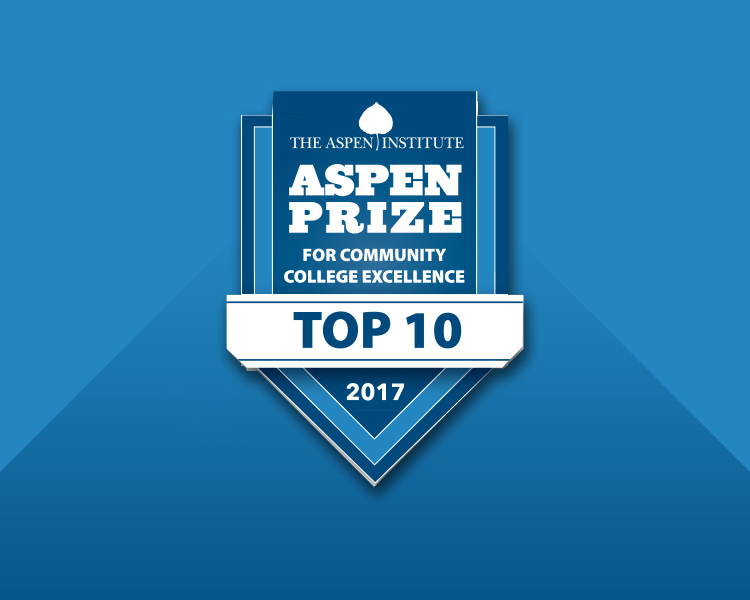
-
2018 -
Fourth satellite campus serves Northwest Pasadena When a block of classrooms becomes available at John Muir High School, the college establishes its fourth satellite campus, known as PCC Northwest. The site brings high-quality programs and services to a neighborhood that has traditionally felt left behind by educational opportunities in the city.
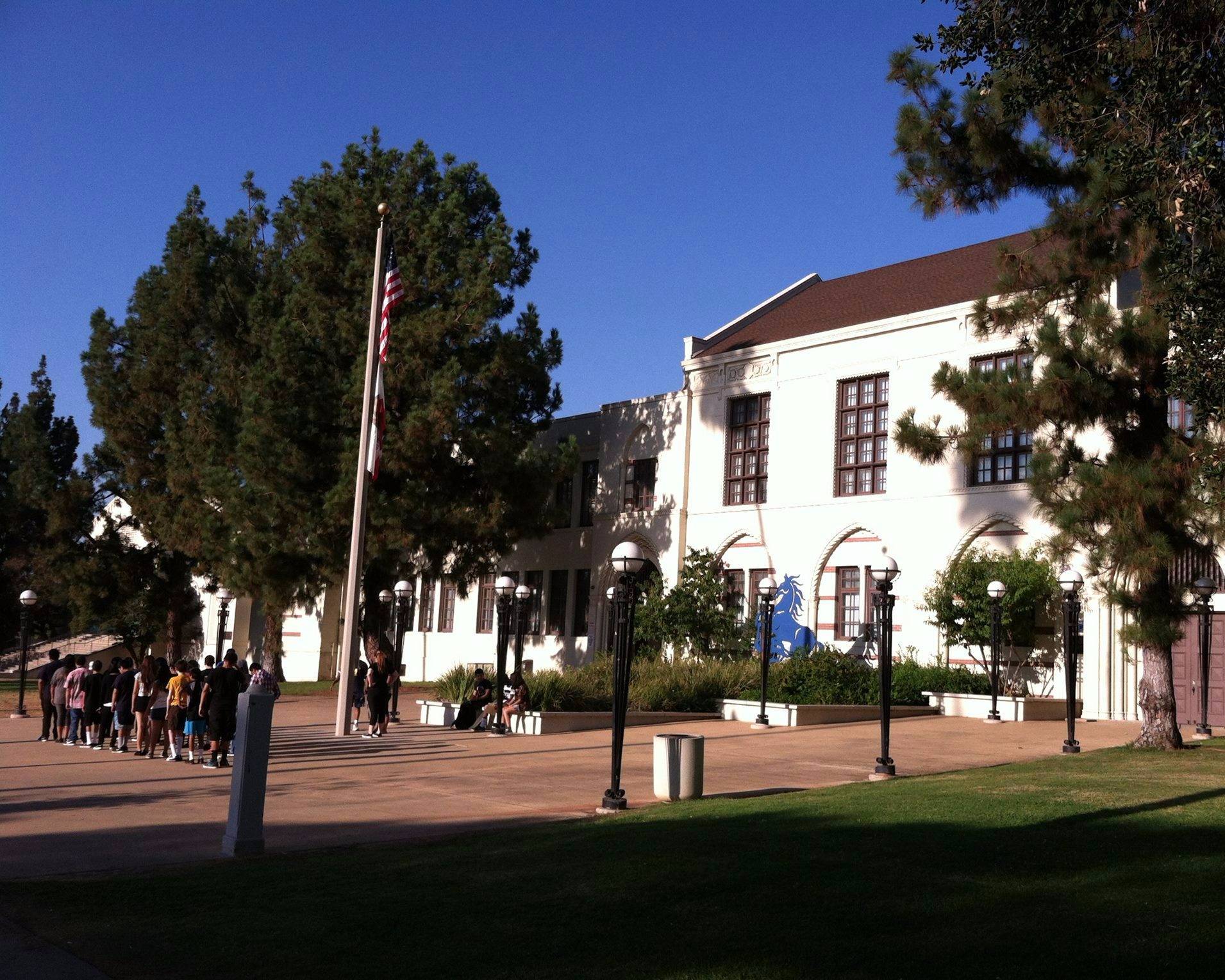
-
2018 -
Becoming a minority-serving institution In the 2010s and early 2020s, the college emerged as a leader in its service to minorities. In 2018, PCC for the first time was ranked first in California in degrees or certificates awarded to Asian American students, Latine students, and minority students overall.
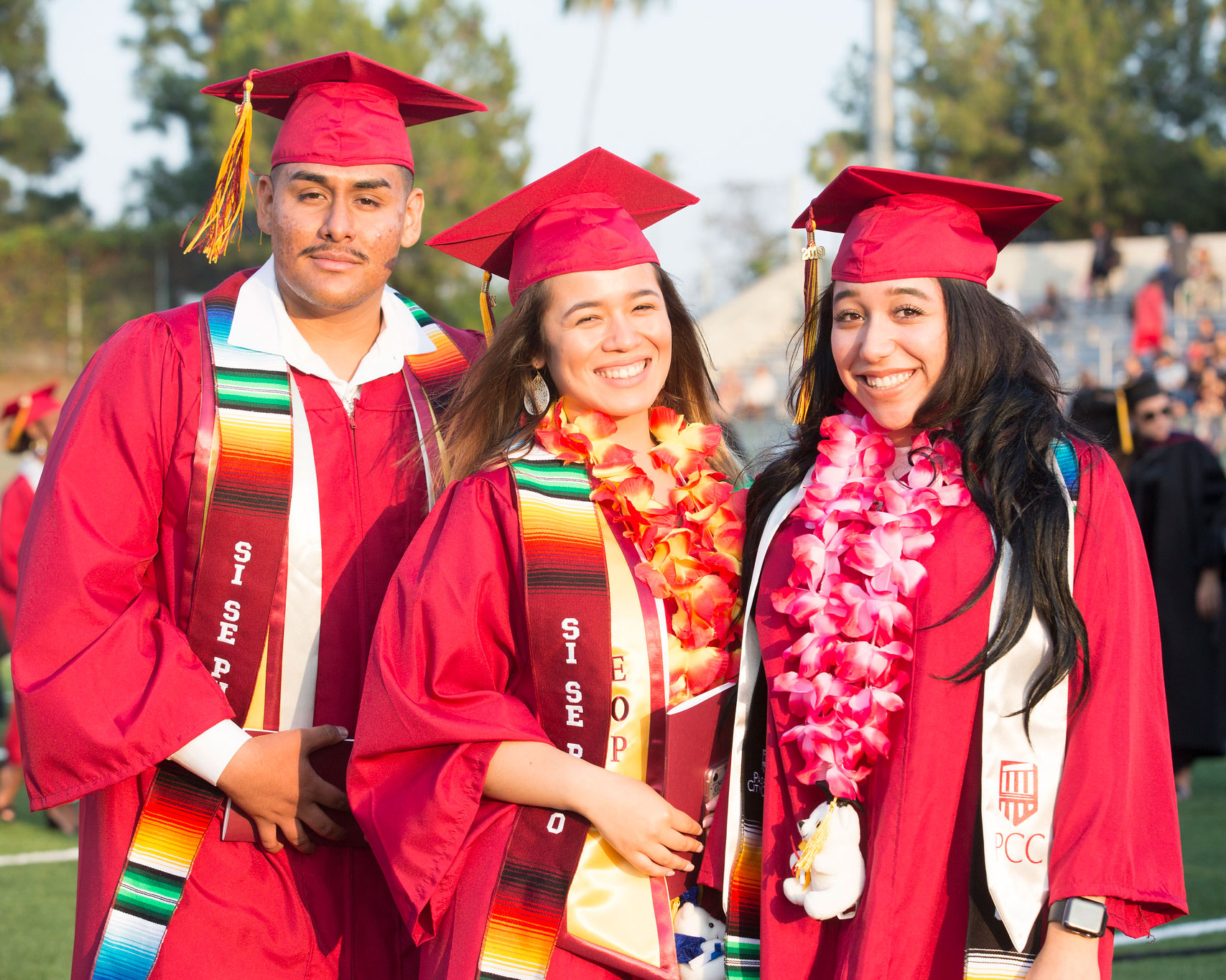
-
2020 -
Groundbreaking advances in science education With backing from the National Science Foundation, California Institute for Regenerative Medicine, and the W.M. Keck Foundation, PCC's programs in nanotechnology and biotechnology are among the nation's leading resources for research and practice in cutting-edge science.
-
2021 -
Transforming two-year education In June, PCC announced the receipt of a $30 million donation, the largest in its history and one of the largest ever to a community college. The landmark investment from author and philanthropist Mackenzie Scott continues to inspire faculty, staff, and students to explore new forms of student instruction and success.
-
2021 -
New Sarafian Building takes shape In the fall, a transformative campus facilities strategic plan gets a jump start with the construction of a new Sarafian Building on the east side of the Colorado campus. The facility will house natural sciences and health sciences.
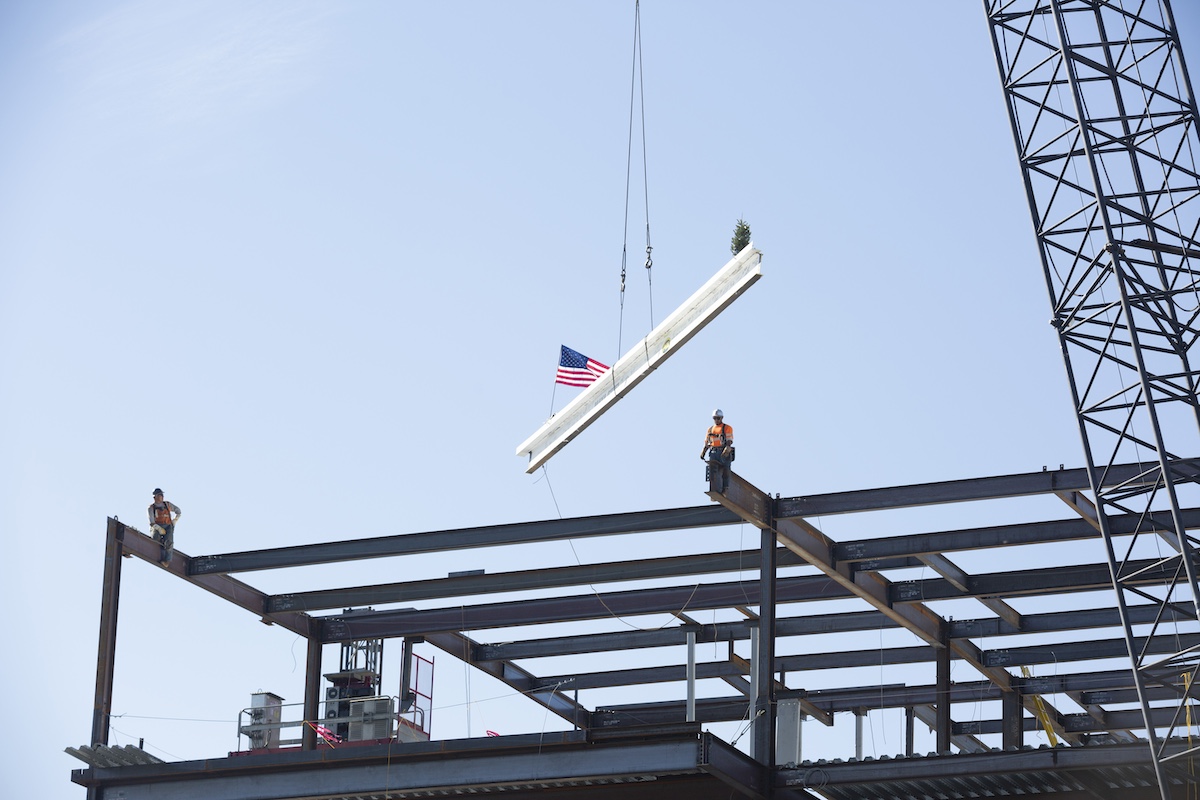
-
2023 -
Moving to a sustainable future Driven by an imperative to take proactive steps against climate change, the college launches a comprehensive series of sustainability investments, ranging from low-emission vehicles and equipment, building and facility improvements, and exploration of alternative energy sources.
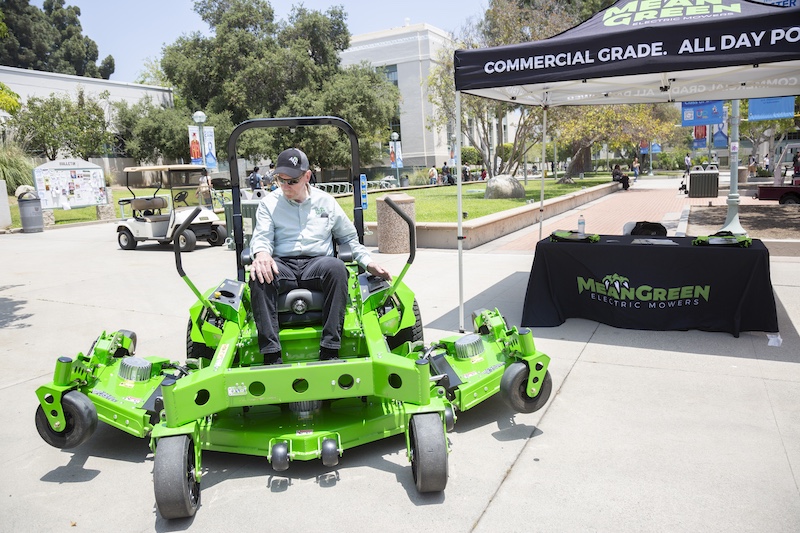
AGZA Green Zone Certification Ceremony
-
2024 -
PCC's Centennial Kickoff Pasadena City College celebrated 100 years of excellence! The milestone brought together students, alumni, staff, faculty, and the San Gabriel Valley community to honor a century of history and achievements.
